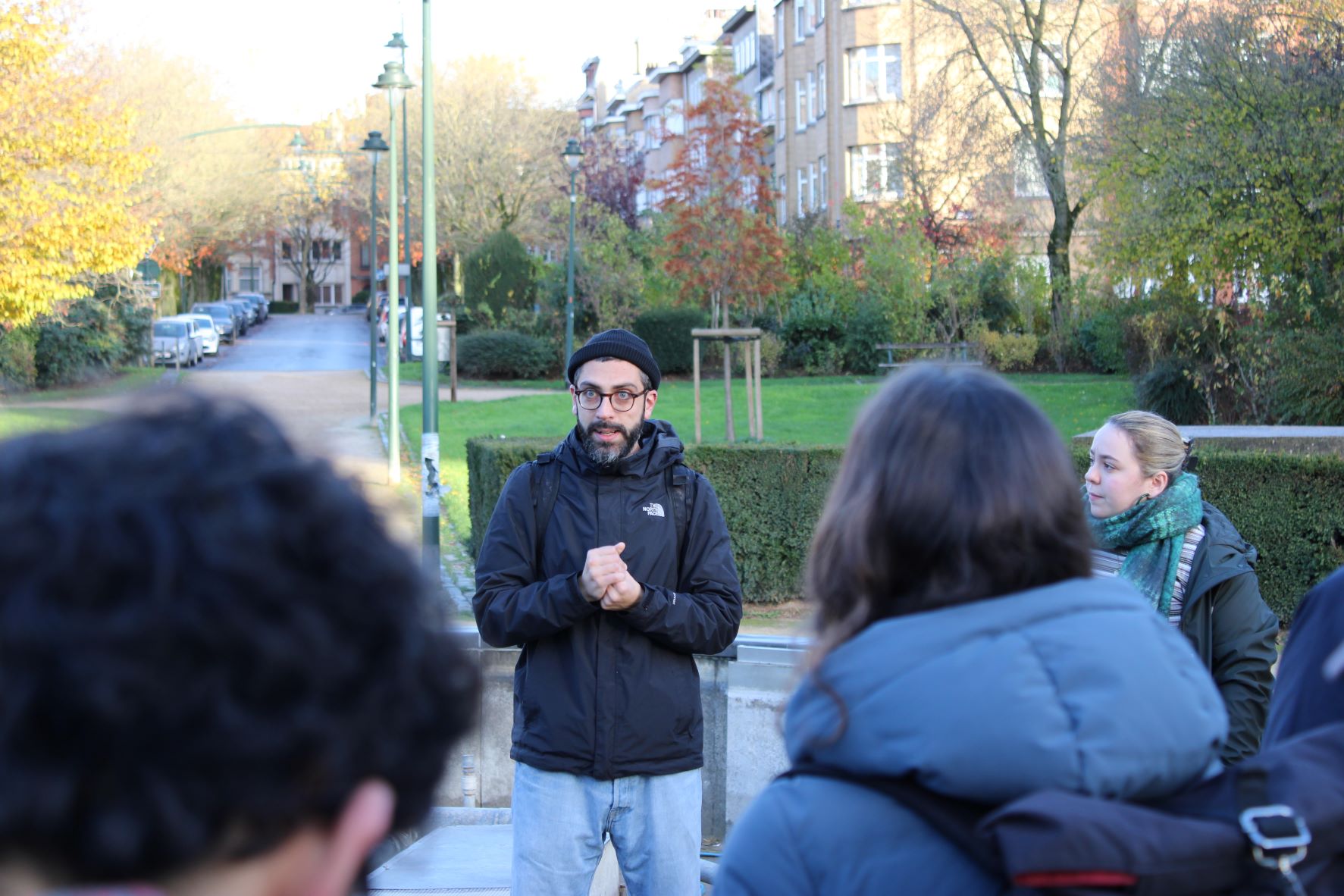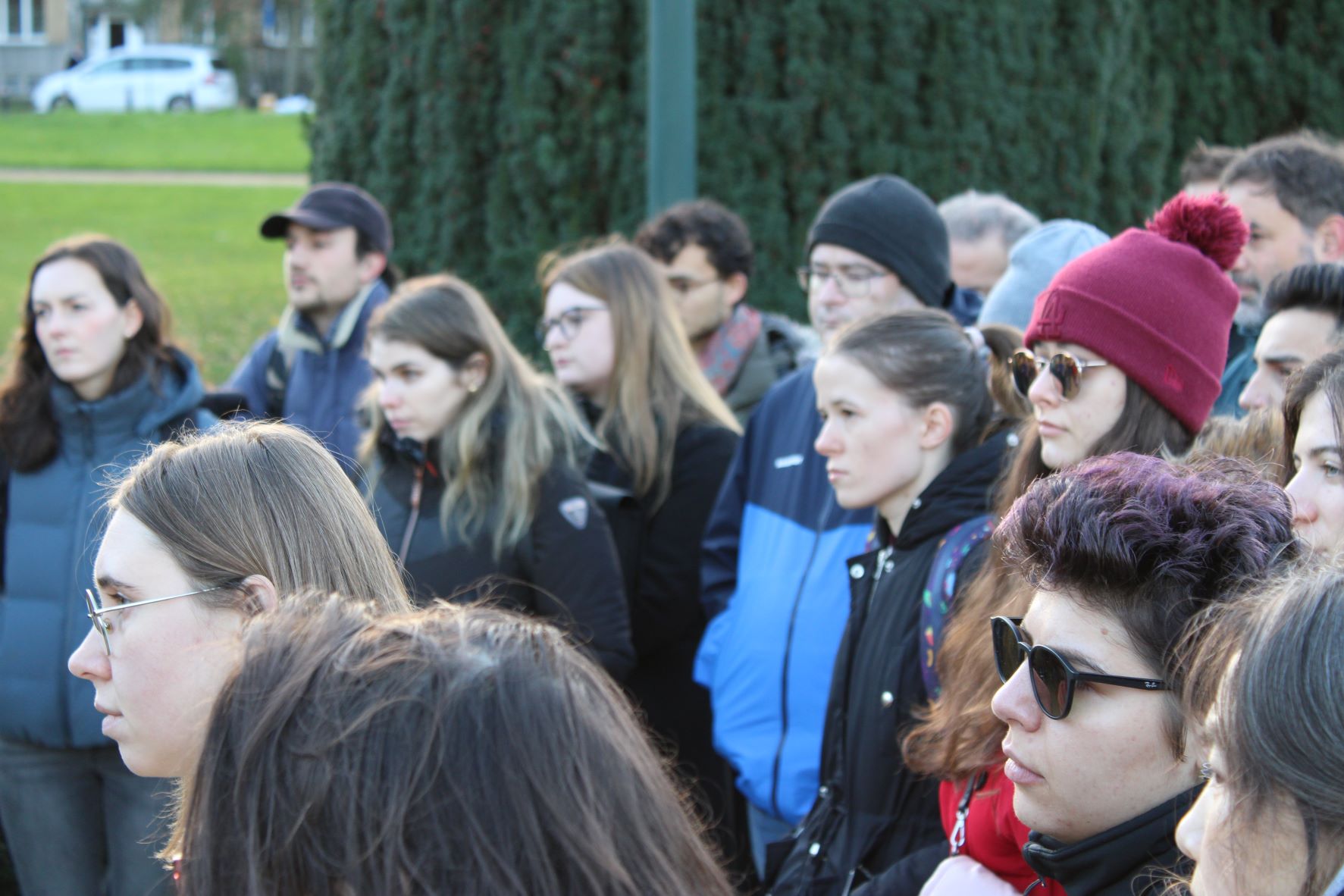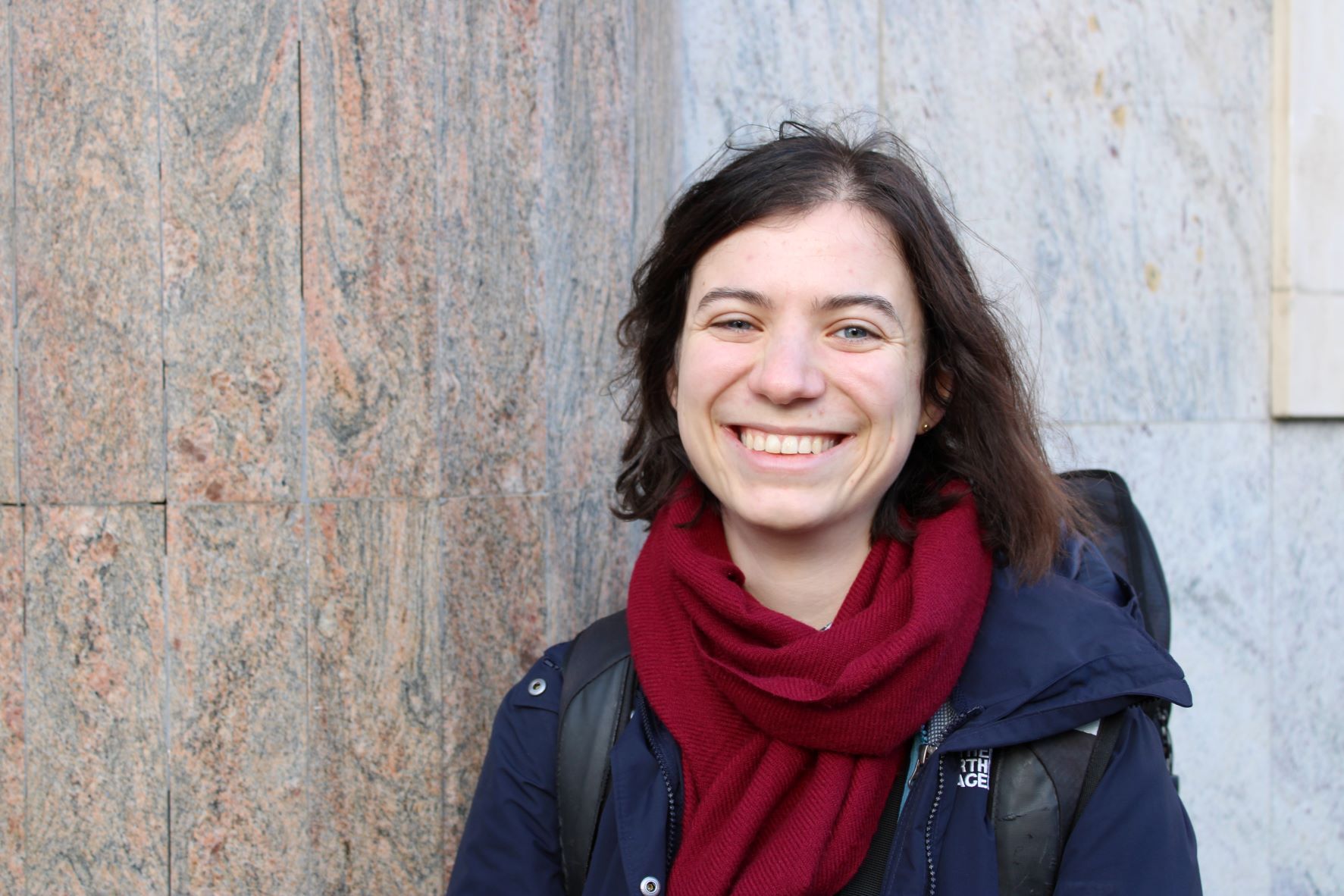Students from across Europe have visited Brussels as part of a CIVIS course exploring the theory and practice of co-creation in city governance. The Blended Intensive Programme (BIP) "Co-creating Urban Futures" offered students the chance to explore innovative solutions to urban challenges, with an accent on ways to include citizens in the planning decisions which affect their daily lives. In line with its own learning objectives, the BIP itself had been co-developed by professors and students at workshops hosted by the Université libre de Bruxelles and the University of Glasgow.

As with all BIPs, the course combined online teaching with a one-week study visit. In this case, students spent 5 days in Brussels, where they worked on group projects and visited examples of planning projects developed in cooperation with residents. For example, one day was spent touring water and flooding management projects which had incorporated co-creation approaches as part of the Brusseau Bis project. These visits exemplified the interdisciplinary nature of the course, combining elements of physical and human geography, politics, town planning and architecture.

A view from a student
Leonie Regen
Student on the Master of Public Policy and Social Change
University of Tübigen

What was it about this course that interested you?
I've been involved since the pre-workshops in Brussels and Glasgow. The organisers wanted to speak with students about what they wanted to learn and how they wanted to learn. I liked that idea, being asked for my opinion! And the topic is urban futures. I've recently noticed that I'm interested in housing, so it just made sense. Now that I'm here for the course, I get to see the output of those discussions.
How are you finding the interdisciplinary approach of this course?
I find it very interesting and very helpful, because I think when you want to do good policy you're going to have to talke to different experts. So it's a good primer for learning different professional languages and focal points. In the online roundtables before the study trip the professors all talked about the things they found important. For example, our professor from Tübingen talked about power and democracy, while others presented case studies about things like water management. It's really nice seeing how those things come together.
What's it like to be here in Brussels?
I'm enjoying it very much. I like big cities! Brussels is an interesting place to be because it feels kind of fragmented. It's like you took different puzzles from different boxes and mixed all the pieces before trying to figure out how they might fit together. This is what Brussels feels like - but in a good way! And it's great to be here with students from the other universities. For example, we were talking yesterday about how silence is different in different countries. The students from Rome were noticing that in Belgium people don't talk on the bus. It adds to the experience because we all bring our own cultural backgrounds to it.
